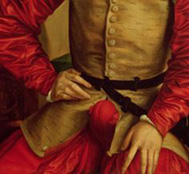
Philip Skippon (1641-91) was an English naturalist, traveller and parliamentarian. Skippon was born in Norfolk, the son of a respected Cromwellian general who had retained his position during the Interregnum. Skippon the Younger studied botany at Cambridge and, after graduation, became a member of the Royal Society.
In 1663, Skippon embarked on a three-year tour of the continent, accompanied by a group of fellow naturalists including John Ray, Martin Lister and Nathaniel Bacon (later the leader of Bacon’s Rebellion in colonial Virginia). Skippon kept a journal of their travels, which took in the Low Countries, Malta, the Mediterranean coast, Italy, Switzerland, France and the German states. This journal was eventually published by London printer John Churchill in 1732, four decades after Skippon’s death.
Much of Skippon’s journal is taken up with observations about the natural environment, agriculture, human industry and activity. But there are also frequent anecdotes and the occasional xenophobic judgement. Skippon wrote that the average Frenchman is fond of “shirking”, “stingy with his purse” and “strangely impatient at all games, especially at cards, which transports those that lose into a rage”. French women are “generally bad housewives”, prone to loose morals and “spotting and painting their faces”.
“Dr Moulins immediately and privately rode away for Lyons in bitter snowy weather, and in eight days arrived in England… On this journey Dr Moulins rode post with a Frenchman. Seeing the boy fall down dead with the extremity of cold, [Moulins] opened his codpiece and rubbed his member virile with snow, till he recovered, which he did in a little time, and the boy was able again to ride post.”
Skippon left Paris in 1666 and continued his travels on the British isles. In 1679 he entered parliament, representing the Suffolk constituency of Dunwich. Skippon was later knighted by James I. He died of fever in Hackney.
Source: Philip Skippon Esq., “An Account of a Journey made thro part of the Low Countries, Germany, Italy and France” in John Churchill (ed.), Collection of Voyages and Travels, 1732. Content on this page is © Alpha History 2019-23. Content may not be republished without our express permission. For more information please refer to our Terms of Use or contact Alpha History.
